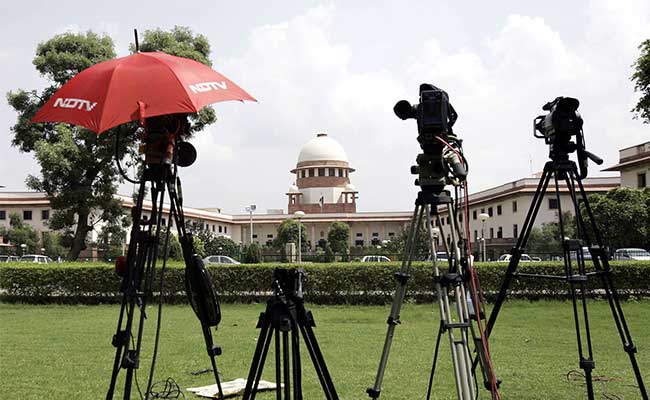
The Supreme Court cited the Emergency of 1975-77, imposed by the then Congress government, while striking down a new law that would have given the government a role in the appointment of judges.
Here the top 10 observations made by the Supreme Court:
Accepting the petitioners' argument centred on the Emergency when Justice HR Khanna, who dissented against the Indira Gandhi government, was superceded, the court said: "Such control in the hands of the executive... would cause immense inroads in the decision making process" and "could result in judges trying to placate and appease the political-executive segment, aimed at personal gains and rewards."
The court said the changes brought by the government do not ensure primacy of judiciary in the selection and appointment of judges.
The "basic structure" of the Constitution would be clearly violated if the process of selection of judges to the higher judiciary was to be conducted, in the manner contemplated through the NJAC (National Judicial Appointments Commission).
Since the executive has a major stake in a majority of cases, the participation of the Union Law Minister, as a Member of the National Judicial Accountability Commission, would be clearly questionable.
The participation of the Law Minister in the final determinative process and that of the Prime Minister and the Leader of the Opposition in the selection of "eminent persons" would be a retrograde step, and cannot be accepted.
The sensitivity of selecting judges is so enormous, and the consequences of making inappropriate appointments so dangerous, that if those involved in the process of selection and the appointment of judges to the higher judiciary, make wrongful selections, it may well lead the nation into a chaos of sorts.
The collegium cannot be blamed for all the ills in the appointment of judges - the political executive has to share the blame equally if not more, since it mortgaged its constitutional responsibility of maintaining a check on what may be described as the erroneous decisions of the collegium. 9)To say that the collegium system has failed and that it needs replacement would not be a correct or a fair post mortem.
It is true that there has been criticism (sometimes scathing) of the decisions of the collegium, but it must not be forgotten that the executive had an equally important participative role in the integrated process of the appointment of judges.
The judges agreed that the system could be improved as a lack of transparency, accountability and objectivity had been noted. "The Collegium system needs to be improved
requiring a 'glasnost' and a 'perestroika', and the case needs to be heard further in this regard."

